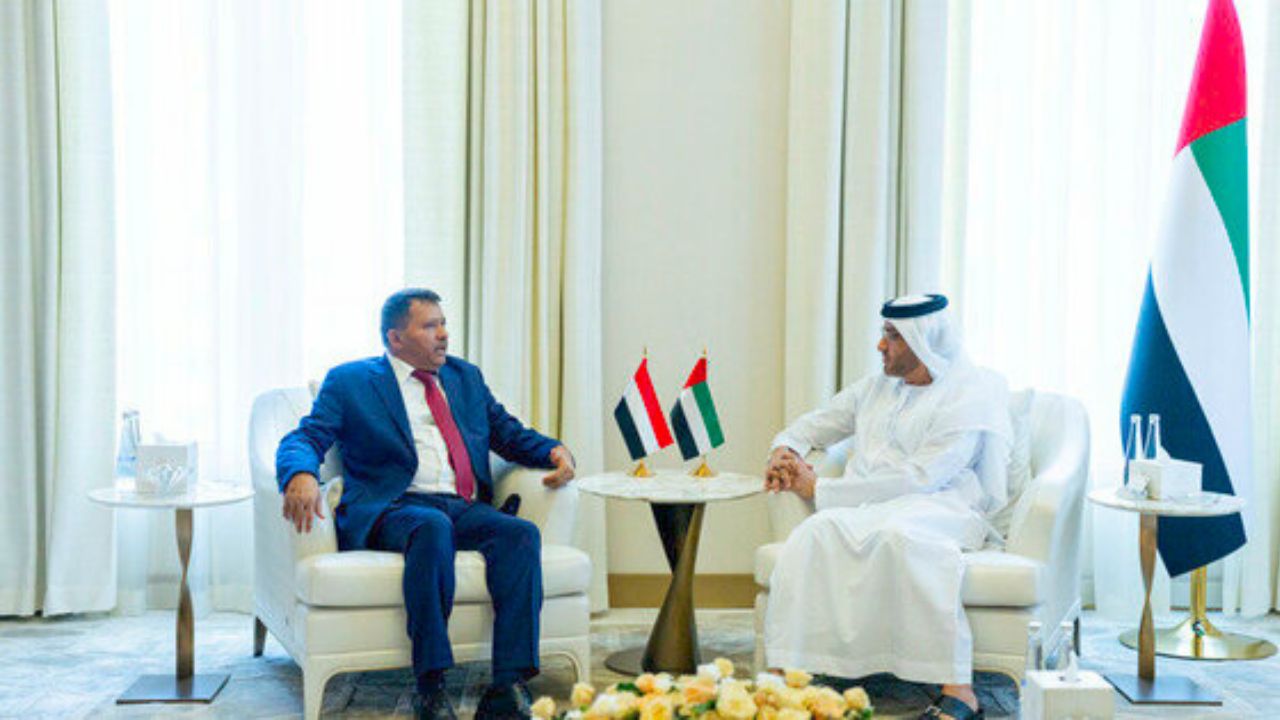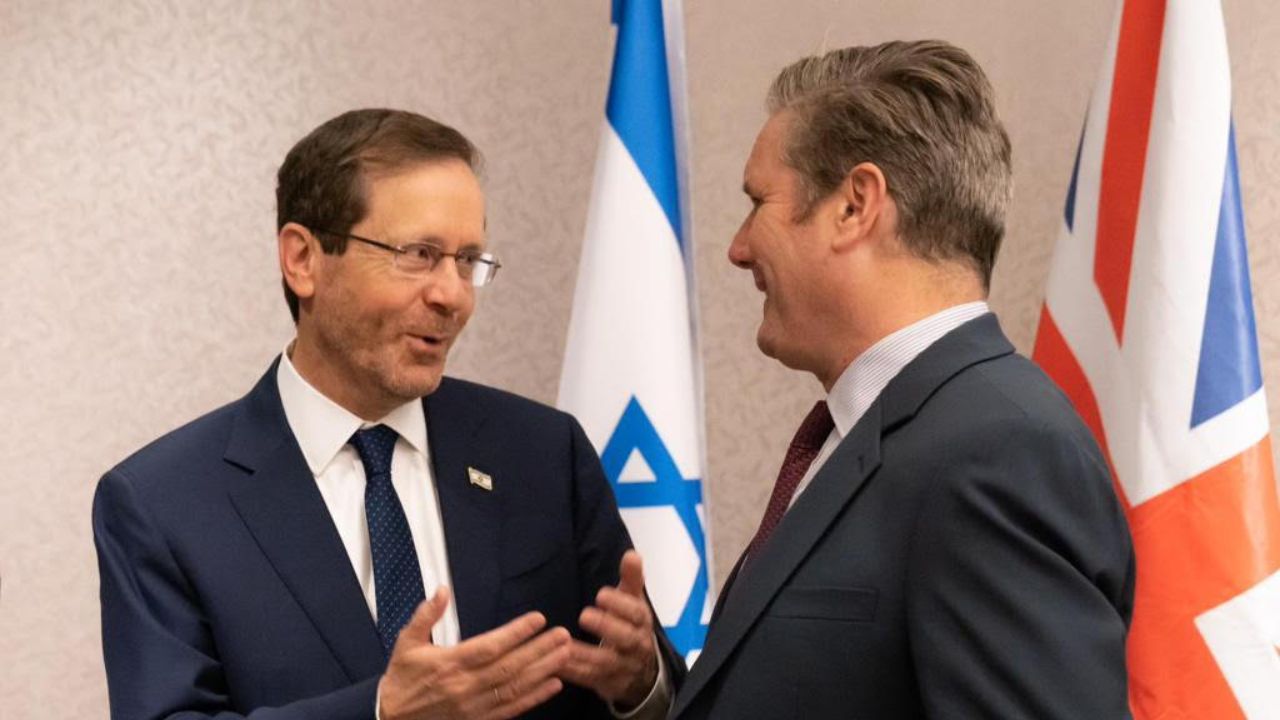
UAE and Yemen Strengthen Legal and Judicial Cooper
UAE and Yemen attorney generals met in Abu Dhabi to strengthen legal ties, enhance public prosecutio

British Prime Minister Keir Starmer’s meeting with Israeli President Isaac Herzog in London this week was expected to be a normal diplomatic event. Instead, it became one of the most difficult conversations between the United Kingdom and Israel in recent years.
The talks, held at 10 Downing Street on September 10, 2025, drew international attention. Outside the meeting, thousands of protesters gathered with signs, banners, and loud chants, accusing Israel of committing crimes in Gaza. Inside the official residence, Prime Minister Starmer delivered one of his sharpest criticisms yet of Israel’s actions.
After the meeting, a Downing Street spokesperson said the British leader told President Herzog that Israel must stop what he called a “man-made famine” in Gaza. Starmer urged Israel to allow more aid into the territory and to halt its military operations, which have continued for almost two years.
The prime minister, who took office in July 2024, has mostly chosen careful words when speaking about the Israel–Palestine conflict. But this time, his message was unusually direct. He “implored Israel to change course,” according to the official statement.
This strong warning came as international aid agencies warned of catastrophic hunger in Gaza. Reports say hundreds of thousands of Palestinians now face the risk of starvation because of the blockade and bombardments.
President Herzog’s trip to London was far from smooth. Large crowds gathered outside Downing Street for two days in a row, many organized by the Palestine Solidarity Campaign. The protests also followed him to Chatham House, a well-known think tank where he gave a speech. Demonstrators banged pots and pans, trying to drown out his words.
Many of the protesters carried messages accusing Israel of committing genocide. “This man is not welcome in our country,” one protester told Al Jazeera. Another said that welcoming Herzog was the same as “aiding and abetting” the violence.
The anger on the streets showed how deeply divided British society has become over Israel’s military campaign. For many in the UK, hosting Herzog at such a time seemed to cross a moral line.
Disagreement Over Air Strike on Qatar
The London meeting also came only a day after Israel carried out an air strike on Qatar’s capital, Doha. That attack, aimed at Hamas officials, shocked governments around the world. Qatar is not only a close ally of the United States but also of Britain.
Prime Minister Starmer reportedly told President Herzog directly that the strike was “unacceptable.” He described it as “a flagrant violation of a key partner’s sovereignty.” These are some of the strongest words any British leader has used toward Israel in decades.
Diplomatic Friendship Tested
Despite the tension, Downing Street later said the UK and Israel “are longstanding allies.” Officials stressed that the two countries have important security, trade, and cultural ties that are not going to disappear overnight.
Still, the sharp words from London suggest that relations are under strain. For years, British leaders have often walked a careful path—supporting Israel as a democratic partner while also calling for the protection of Palestinian civilians. Now, with images of hunger and devastation from Gaza reaching every corner of the world, that balancing act is becoming much harder.
What This Means for Britain and Israel
Editorially, this moment shows a change. Keir Starmer has decided that Britain cannot stay silent while a humanitarian crisis grows. His statement about a “man-made famine” was not only a criticism of Israel’s military choices but also a moral stand.
At the same time, Israel’s government is unlikely to change its policy quickly. President Herzog may argue that his country is fighting terrorism and protecting its citizens. But international pressure is mounting, and even close allies like the UK are now speaking more openly against Israeli actions.
The protests in London are also important. They show how strongly the British public feels about the issue, and leaders in Downing Street cannot ignore that anger. When ordinary citizens say “not in our name,” it pushes the government to take a clearer stand.
A Test of Values
In the end, the meeting between Starmer and Herzog was more than just a diplomatic discussion. It was a test of values. Britain had to decide how far it would go to defend human rights while still keeping old alliances.
For many observers, Starmer’s words signaled that the UK is beginning to shift toward a firmer position. The famine in Gaza and the strike in Qatar have made it harder for Britain to stay neutral.
This does not mean London will cut ties with Israel, but it does mean the relationship will be watched more closely than ever.
The Downing Street talks showed the growing gap between Britain’s values and Israel’s current path. Prime Minister Keir Starmer’s strong words may not change Israeli policy immediately, but they add to the growing global call for a change in Gaza.
President Herzog’s London visit may have been meant to strengthen ties. Instead, it exposed the rising pressure on Israel from even its closest partners.
For Britain, the choice is now clear: it must stand firmly for humanitarian principles while navigating one of its most complex international friendships.